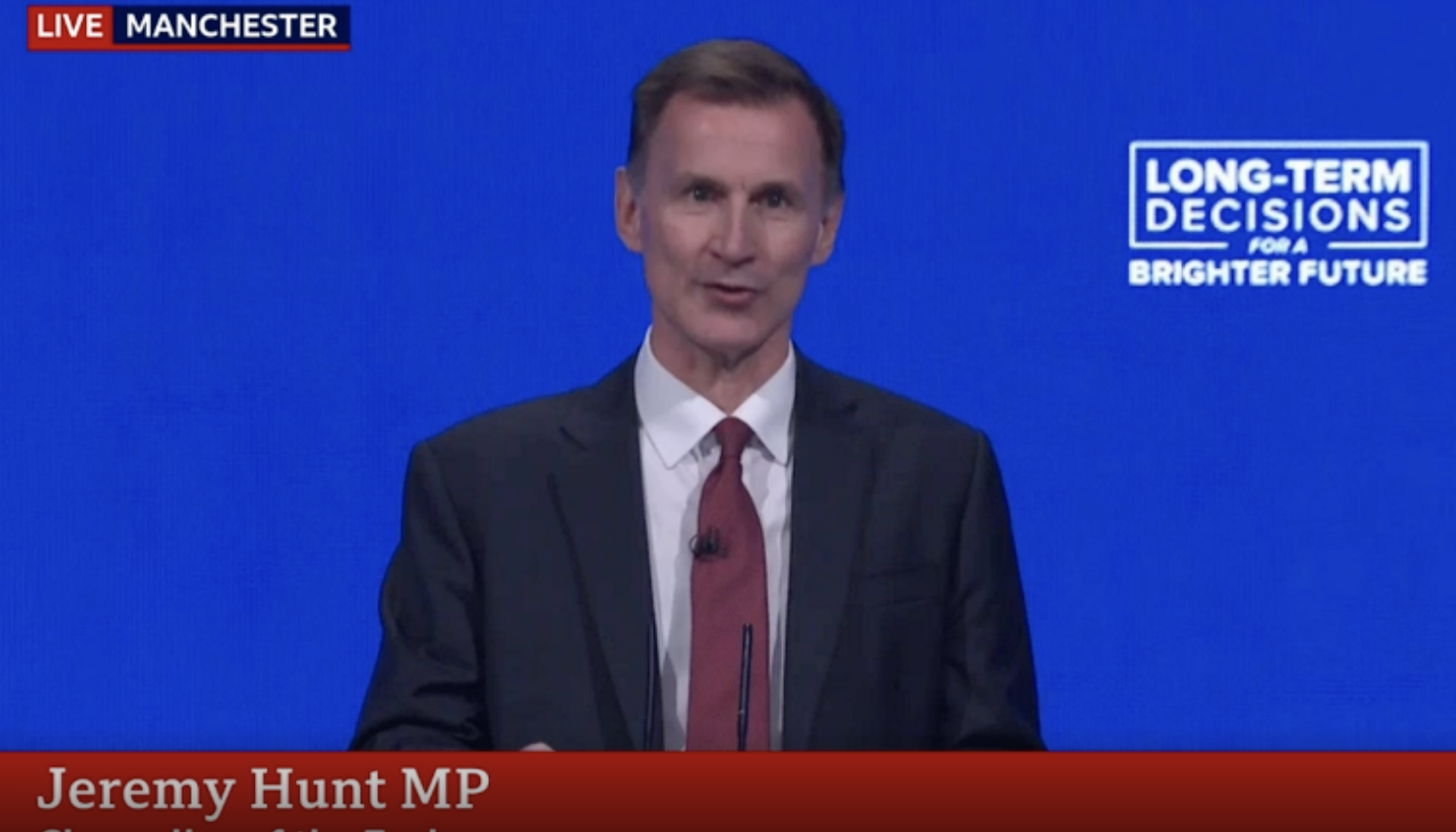Jeremy Hunt has announced that the national living wage will be increased to at least £11 an hour from next April.
Speaking at the Conservative Party Conference, the chancellor set out his plans to drive more people into work such as through increasing the national living wage and imposing tougher sanctions for benefits claimants.
Hunt has claimed the national living wage has lifted nearly two million people out of poverty after housing costs. Increasing the national living wage is welcome news, but there are fears it will short of the real living wage by April as prices keep increasing.
That’s a rate calculated by the Living Wage Foundation based on up-to-date living costs, taking into account the cost of bills, food and other measures.
Your support changes lives. Find out how you can help us help more people by signing up for a subscription
Director of the Living Wage Foundation Katherine Chapman said: “A rise in the statutory national living wage from next April is welcome news for low paid workers, but may fall short of the real living wage next year, the only rate that is independently calculated based on the cost of living. The new real Living Wage rates will be announced later this month on the24th October, where we expect a significant increase.









